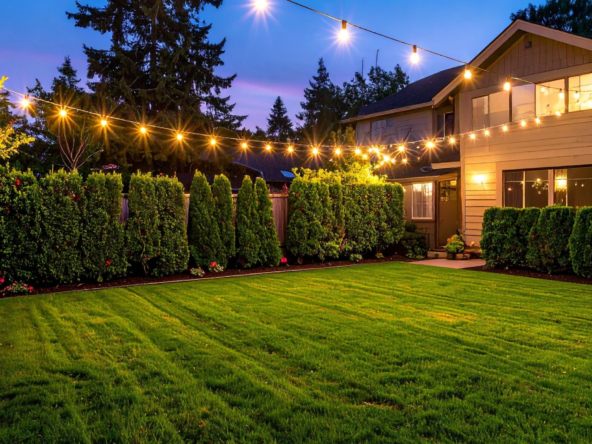TLDR
- ADUs boost flexibility, income potential, and resale value in Eagle’s tight market.
- Know size limits, zoning rules, and financing options before you write an offer.
- Analyze rental income, utility setup, and permitting timelines to protect your ROI.
- Work with an Eagle Idaho realtor to price smart and negotiate win-win concessions.
What does buying a home with an ADU in Eagle really mean?
Buying a primary home with an ADU or guest house gives you extra living space for family, rental income to offset your mortgage, or a dedicated office. In Eagle, where lifestyle amenities and schools drive steady demand, that flexibility is a real advantage. Intermountain MLS data shows our market running with constrained supply, and statewide inventory remains under balanced levels. According to Freddie Mac mortgage rates, in a market where sellers still have leverage, ADU-equipped properties stand out and often move quickly.
Local buyers are value focused. With typical Eagle values around the high 700s and median sale prices hovering near the low 800s, an ADU can make the numbers work for both sides. Sellers love the wider buyer pool and stronger net proceeds. Buyers appreciate a second door that supports multigenerational living or modest rental income. That is especially true near parks, schools, and the Boise River Greenbelt.
Here is how I define it as Chris Budka:
- A conforming accessory dwelling with its own kitchen, bath, and sleeping area
- A living space that is legally permitted and recognized by the City of Eagle
- A strategic asset that improves affordability and resale for Eagle ID homes for sale
How do Eagle’s ADU rules and financing options work?
The City of Eagle regulates ADU size by lot area. While there are nuances by zoning district, the general thresholds many buyers encounter are simple. On lots 7,499 square feet or smaller, the maximum ADU size is about 500 square feet. On lots between 7,500 and 16,999 square feet, the limit rises to roughly 640 square feet. On lots 17,000 square feet or larger, the cap is typically about 800 square feet. Always verify the latest standards with the City of Eagle Planning and Building teams. You can start with the city’s planning resources at the City of Eagle.
Financing depends on property price and your plans. Many buyers use conventional financing, and some qualify for jumbo options given Eagle’s price points. If the ADU needs work, an FHA 203(k) renovation loan may fit. First-time buyers can explore down payment help through the Idaho Housing and Finance Association’s programs at IHFA down payment assistance. The Boise City and Ada County Housing Authorities’ Homeownership programs can also expand your options. Owner-occupants should remember the Ada County Homestead Exemption to reduce property taxes.
Rate volatility affects buying power in any cycle. If you are sensitive to payments, we can negotiate seller credits for a temporary or permanent buydown to bridge the gap. In a market with roughly under three months of supply and year-round demand, strategic concessions often make deals work without sacrificing price.
How do utilities and parking factor into approval?
Eagle evaluates off-street parking, ingress, and utility connections for ADUs. Separate electric and water meters are not always required, but clean layouts, access, and safe egress are essential. Septic or private systems require added scrutiny outside city services. I coordinate with the City of Eagle and utility providers early so your timelines stay on track.
Where are the best neighborhoods to find ADU or guest house opportunities?
ADU feasibility varies by subdivision rules and lot sizes. Near my office at 408 S Eagle Rd, Suite 205, Eagle, ID 83616, several neighborhoods stand out for buyers and sellers who value guest houses.
- Two Rivers
– Details: Luxury homes, water features, close to downtown and the Greenbelt – Watchouts: Strict HOA design standards and approvals for any changes – Typical timeline: 30 to 45 days if financing and HOA docs are aligned
- Island Woods
– Details: River access vibe, easy commute along Eagle Road, premium lot sizes – Watchouts: Confirm if a detached guest suite is conforming under CC&Rs – Entry-level path: Convert space over a garage with targeted permits and plans
- Legacy
– Details: Large master-planned community in North Eagle with amenities and trails – Watchouts: Newer construction means modern codes, but HOA design rules apply – Typical timeline: 35 to 50 days as appraisers analyze amenity and ADU premiums
- Brookwood
– Details: Mature landscaping near Eagle Hills, good lot sizes for attached suites – Watchouts: Review setbacks and any ADU restrictions with the HOA – Entry-level path: Interior suite with kitchenette for multigenerational living
- The Preserve
– Details: Northwest Eagle, newer builds, parks and pathways – Watchouts: Review current CCRs and confirm separate entries where required – Typical timeline: 30 to 45 days when inspections and permits are well documented
- Corrente Bello
– Details: Upscale aesthetic with picturesque streetscapes and community areas – Watchouts: Design committee approvals may add time to any ADU modifications – Entry-level path: Attached casita or studio over garage with HOA-compliant plans
As an Eagle Idaho realtor, I keep an updated matrix of HOA rules, typical lot sizes, and recorded approvals. That helps sellers decide how to position a guest house and helps buyers streamline due diligence.
What are the pros and cons of an ADU or guest house in Eagle?
Pros:
- Predictable rental support that can offset monthly payments and improve DTI
- Flexibility for multigenerational living without sacrificing privacy or comfort
- Strong resale appeal in a low-inventory market with steady lifestyle demand
Cons:
- HOA and city approvals can add time and require design changes
- Insurance, utilities, and maintenance costs reduce net income if not planned
How do I evaluate costs, income, and timelines to close confidently?
Start with the numbers. Many ADUs in Eagle can earn an estimated 1,200 to 1,800 per month depending on size, finishes, and proximity to amenities. On a purchase in the 800,000 to 1,000,000 range, that income can materially offset the carrying costs while preserving your lifestyle. We will also model scenarios with different rates, down payments, and buydown credits to protect your comfort zone.
Permitting and timelines vary by project type:
- Converting an existing bonus room to a studio
– Permits and drawings: 2 to 4 weeks – Buildout: 6 to 10 weeks
- Detached guest house addition
– Design and approvals: 6 to 10 weeks – Construction: 4 to 6 months depending on scope and weather
- Interior suite with private entrance
– Permits: 2 to 6 weeks – Buildout: 8 to 12 weeks with minimal structural changes
Costs depend on finishes and whether utilities require upgrades:
- Light conversion with kitchenette and bath: 35,000 to 75,000
- Attached one bed ADU: 85,000 to 150,000
- Detached casita with kitchen: 150,000 to 300,000 plus utility extensions
One of my clients bought in Island Woods with a permitted studio above the garage. We verified permits, confirmed separate entrance, and negotiated a seller credit for rate buydown. Their rental covered roughly one third of the new mortgage from month one. Another client in Brookwood sold a home with an attached guest suite. We marketed it as multigenerational ready, highlighted proximity to Eagle High, and secured multiple offers despite rate headwinds. That is the power of smart positioning and home selling in Eagle idaho.
For city resources, review Eagle’s planning pages at the City of Eagle. For buyers leveraging first-time programs or longer horizon plans, explore IHFA down payment assistance and BCACHA Homeownership. If you plan to live in the home, apply for the Ada County Homestead Exemption after closing.
FAQs
1) What makes ADU-equipped homes sell faster or for more in Eagle? Low inventory and strong lifestyle demand create a premium for flexibility. An ADU supports multigenerational living, a home office, or rental income, which broadens your buyer pool. Intermountain MLS trends show steady competition for move-in ready homes, and ADUs reduce buyer friction by solving practical needs. Marketing the suite properly and documenting permits protects value and speeds up appraisals.
2) Are detached guest houses always allowed in Eagle subdivisions? Not always. City zoning and building codes must permit the use and size, and HOA covenants can be more restrictive. We will pull recorded CC&Rs, chat with the architectural review committee, and confirm setbacks, height, and entry requirements. Early coordination avoids surprises and helps you budget for design tweaks, screening, or parking solutions if needed.
3) How should I underwrite rental income from an ADU when I buy? I recommend a conservative approach. Underwrite at the low end of comparable rents, assign a vacancy factor, and include utilities if not separately metered. Lenders may only count a portion of projected rents, so we model both lender-eligible income and your real-world net. This ensures the home still pencils if rents soften or renovations take longer.
4) What inspections are most important for ADUs or guest houses? In addition to a general inspection, order a sewer scope, HVAC assessment for both units, and electrical load evaluation if panel upgrades are likely. If a detached unit is present, verify foundation, roof life, and moisture control. I also request permit history from the City of Eagle and any final approvals or certificates of occupancy to confirm conformity.
5) How do rate buydowns and seller credits help with ADU properties? Buyers can use seller credits for closing costs or to temporarily or permanently reduce the rate. That improves payment comfort without lowering price. In return, sellers maintain headline value, and the ADU’s income offsets the monthly cost further. I negotiate these structures frequently to create win-win outcomes in a competitive but inventory constrained market.
6) Can I short term rent an ADU in Eagle? Short term rental rules vary by zoning district and HOA. Some subdivisions prohibit nightly rentals even if the city allows them in certain zones. If short term revenue is central to your plan, we will confirm regulations with the City of Eagle and the HOA before you remove contingencies. Many buyers opt for longer term rentals to simplify compliance.
7) What Eagle neighborhoods near downtown are best for multigenerational setups? Two Rivers, Island Woods, Brookwood, and Eagle Hills area neighborhoods offer layouts that work well for multigenerational living. Large lots, main level suites, and bonus spaces over garages make separable living areas practical. Legacy and The Preserve also present opportunities with newer construction and thoughtful floor plans. We will match your needs to specific streets and builders.
Conclusion
The bottom line Buying a home with an ADU or guest house in Eagle is a strategic way to blend lifestyle and financial performance. In a market with limited supply and stable demand, the right ADU can improve affordability, flexibility, and resale. Your success hinges on verifying permits, modeling realistic income, aligning with city and HOA rules, and negotiating smart credits. As the Best Realtor in Eagle Idaho for data driven planning and smooth execution, I bring local knowledge, neighborhood nuance, and proven negotiation to every deal. When you are ready, Chris Budka Real estate is here to help you win.










